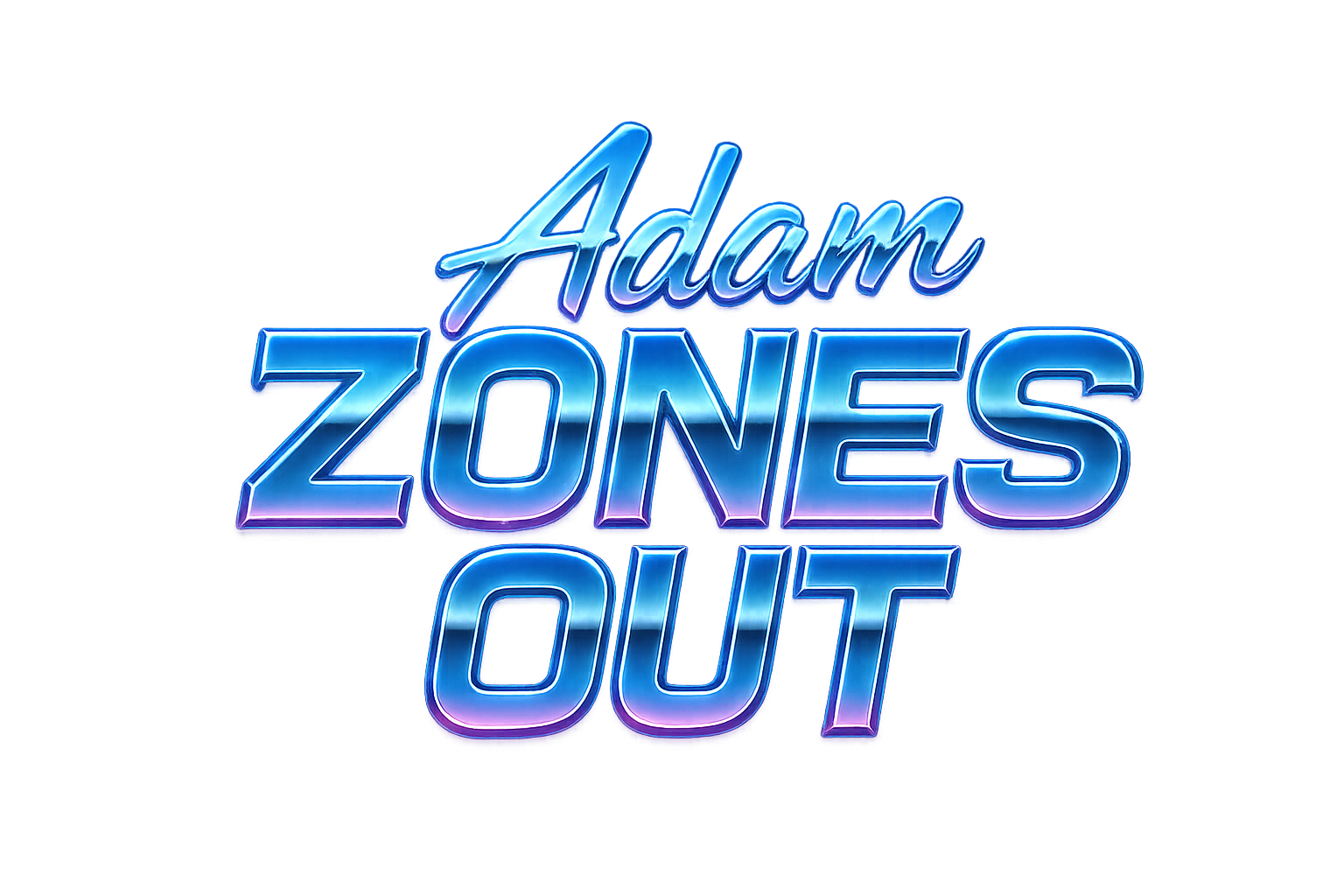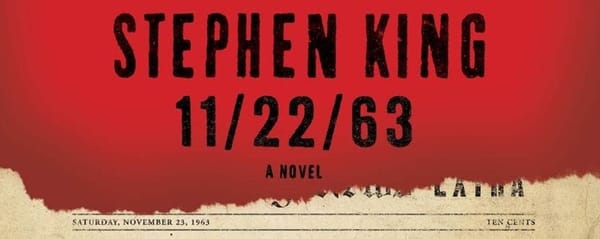"Zoning" Out, Volume VI: Earth
Even in space, they all want to nuke each other
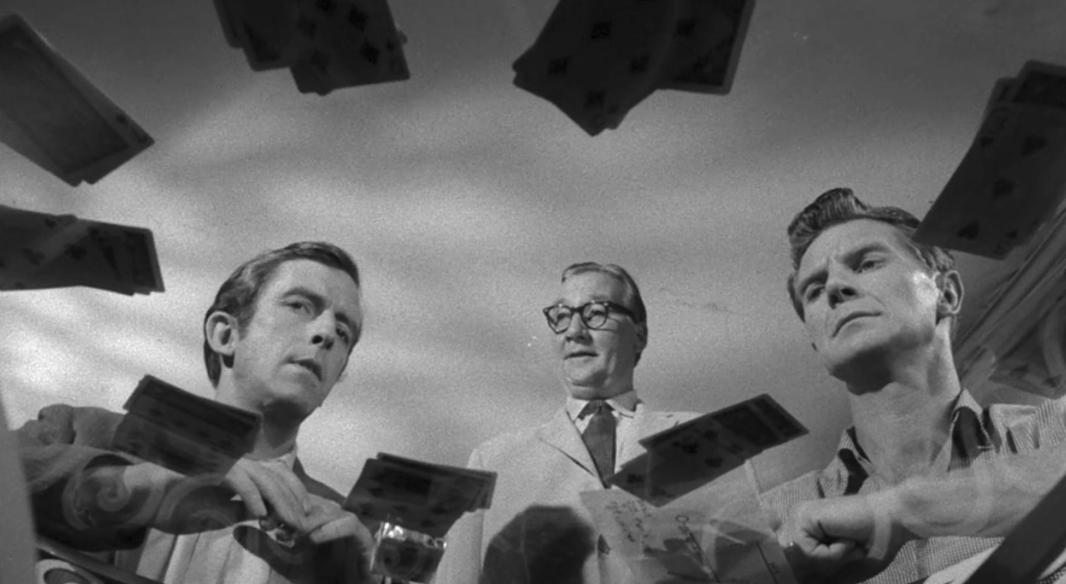
"THIRD FROM THE SUN" - January 8, 1960
Some of my favorite movies and TV shows are ones that you have to watch multiple times to catch things that you missed the first time, or to watch knowing how it all ends to make sense of it all. This is a very common trope in The Twilight Zone, seen in episodes like "Where is Everybody?", "Eye of the Beholder" or "Will the Real Martian Please Stand Up?", that take on a whole different perspective once the twist is revealed. We're back in the first season after motivation moved me ahead to season four, with another of those episodes, "Third From the Sun". Written by the legendary Richard Matheson, the name of the episode itself is something of a giveaway, which is why they obscured the title back when it originally aired in 1960. It's a very odd and unsettling episode wrapped around what would have been considered a normal existence in the 1950s and early 1960s, which is probably why it feels so odd and unsettling.
Fritz Weaver, in the first of two performances in the Zone, portrays William Sturka, a military scientist for the government. His job is to help the creation of devastating weapons that when used will cause the eradication of their enemies. Because he's a man of decency you can see how the job wears away at him, living with the knowledge that things are about to get very bad and carrying the guilt of his work. In fact, according to his creepy fellow employee, Carling, the bombs are dropping within 48 hours. He states this with the kind of glee that makes things even more unsettling, like he's a spectator, not a future victim. Edward Andrews stars in another TZ in the troubled season five, but his turn as Carling is the unsung performance of this episode, providing the role as antagonist for the faceless government they work for. More or less, he's a narc looking for those who are not loyal to the regime, and appears at real inopportune times to foil Sturka and his friend, Jerry Riden, played by Joe Maross, who also appeared in a second Twilight Zone later on.
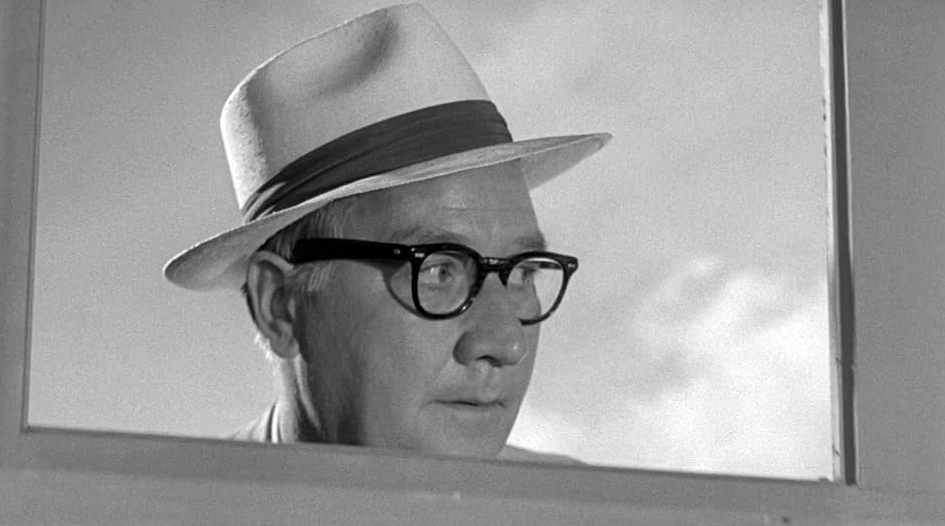
The duo use the guise of "watch repair" to run a loud machine in the garage to plot an escape from the soon-to-be wrecked planet, as Jerry has friends in high places with access to a spaceship that can take them to another planet that hosts humans, and with any luck, isn't full of nihilists out to nuke everything to pieces. Hopefully they don't blow up the optometrist offices! Everything comes to a head that night, when the Sturkas and Ridens get together for cake, lemonade, and cards. Even William's poor daughter Jodi Sturka had to break her date to be there! Jodi is played by Denise Alexander, who some might remember as Lesley Webber on General Hospital back in the day if you had moms who watched it while waiting for you to come home from school. She was one of the few remaining TZ cast members still living when the year started, but unfortunately she passed in March of this year.
Random tangent aside, William and Jerry use the card game as a pretense to explain to their family that they need to get off this planet, and need to do it now, before it's too late. Their scheming is interrupted by Carling in the most intense scene from the episode, where they try to hide their plans scribbled on a piece of paper, so Carling doesn't see it and go running back to his superiors to get rewarded for his loyalty or something. Once he leaves to "take a walk, because he loves walks on a warm evening", the families make their move and head out to the base where the spaceship is housed. Of course, Carling is there and thinks he has them cornered where they can be arrested and probably strapped to one of the missiles as punishment, but the women behind the men take action and allow William and Jerry to subdue Carling once and for all, and take off.
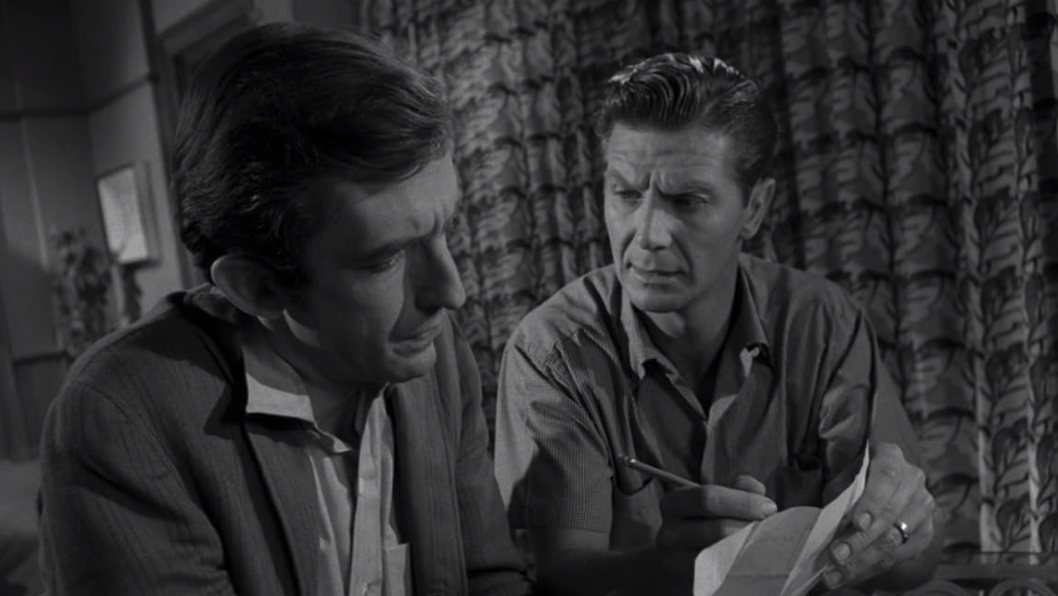
In the final scene, you see the boys working in the ship, making sure everything is a-okay. It's funny to note they are not in spacesuits, nor affected by gravity! Jerry explains that they are "11 million miles" away from their destination. Hoping they are going to a place free of fear and war and instead peace and tranquility, they head to the "third planet from the sun", known as Earth. Then, upon landing they start messing around with everyone on Maple Street just to see if they can do it. No, just kidding. The episode ends there, and then we all laugh and laugh and laugh at them thinking the Earth is free of war and fear. The twist of the characters actually being on a different planet that is about to destroy itself was a big surprise back then, and thus this episode is one referenced frequently for the surprise twist.
On its face, the twist is a surprise because, well, humans! They speak English, drive similar cars, have similar homes, drink and eat the same things, and have the same culture. There is nothing amiss in that observation, which makes the twist work. It also makes it a stretch at the same time, because there's really no way there could be another world that has more or less exactly the same culture as us. Yet, when you watch the episode again knowing how it ends, you see some very weird things. The episode is filmed with the Dutch Angle used often, which adds to the claustrophobia of it, but also creates a feeling of "otherness" that implies that maybe they truly aren't on Earth. Then check out the house itself, with weird art on the walls, a strange telephone that "rings" far differently than ours do, and when Jodi asks her dad to dance, the music she places is unlike anything that would have existed in 1960s Earth.
Thing is, you're so engrossed in the drama and tension of the episode that those things may not go noticed the first time around, or at least shrugged off as "Twilight Zone weirdness". There's a later Twilight Zone, called "The Parallel", where an astronaut somehow finds himself in a version of Earth that got hit by the Butterfly Effect, but only slightly, and everything is just off by a smidge, enough to create something like what we would call the Uncanny Valley. It makes for an unsettling episode where everyone is just freaked out by these tiny, insignificant differences and everyone just wants to be rid of it. "Third From the Sun" doesn't go as far, but instead drops subtle hints that what you're seeing isn't what you're expecting to see. By making everything seem "normal" on the surface, it allows the twist to hit harder. In this case it's not as emotionally shocking as "It's a cookbook!" or "The invaders are us!", but more of an "oh wow!" moment.
"Third From the Sun" was an early episode that showed the promise of what Twilight Zone could be. It was a morality play against war and destruction, wrapped in a science fiction plot twist, to make it palatable to CBS, which already made Rod Serling's life hell by forcing him to tone down his scripts. Probably wouldn't appreciate the story actually taking place on Earth! Due to it being 15 years downstream of World War II ending, the idea of a nuclear holocaust was far more prevalent in the minds of many, making it very prescient for its time. It's also an intense, anxiety-laded, extremely well-acted episode that is one of the more engrossing 30 minutes you'll find on television, and the kind of clever twist that keeps people coming back.
